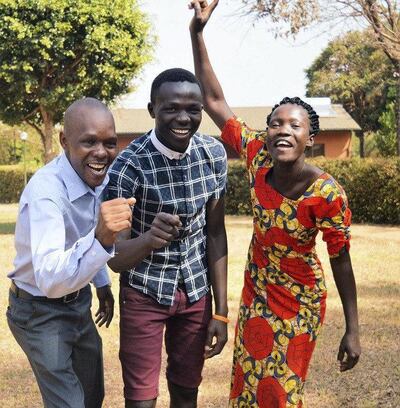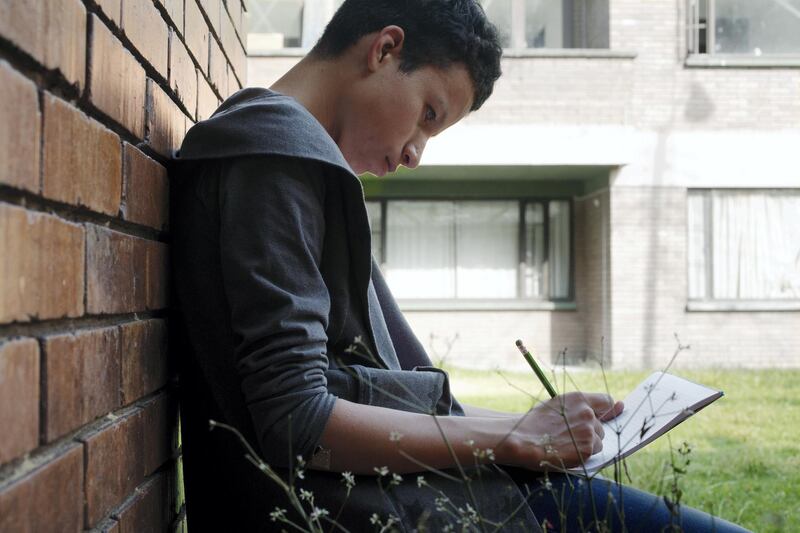A global organisation providing homes for thousands of young people displaced by conflict and disaster is helping to tackle the Middle East’s youth unemployment crisis.
SOS Children’s Village has offered shelter and support to needy children and young people for more than 50 years in countries such as Syria, Lebanon, Palestine and Jordan.
Now it is taking on a new challenge.
Youth unemployment in Arab countries is about 30 per cent, the latest Arab Youth Survey said, and SOS Children’s Village is determined to change that fact.
The organisation, which has a presence in more than 130 countries, has launched an initiative called YouthCan to help young people climb the career ladder.
The project offers services from hands-on work experience and entrepreneurship training to access to mentors who can help jobseekers build their skills.
Through its digital arm YouthLinks, the scheme also gives young people the chance to receive advice from employment mentors around the globe.
“The programme provides a platform for youth empowerment through effective corporate engagement,” said Alia Al Dalli, director of the Mena region for SOS Children’s Villages.
“Political, economic and social factors have a direct impact on youth unemployment. Unless these factors are addressed, looking for a job can be daunting, especially for those who cannot depend on resources and family guidance.”
Education is another obstacle faced by young people.
“The quality of education is also a cause of concern for young Arabs, particularly in non-Gulf countries,” Ms Al Dalli said. “Nearly half the Arab youth said they were not satisfied with the current level of preparation of students for the jobs of the future.”
Of the 51 per cent who said they were satisfied with the education system, 81 per cent are from the GCC countries, last year’s Arab Youth Survey said.
YouthCan was introduced in Jordan, before being set up in Lebanon this year. The programme is also expected to be introduced in Morocco.
SOS Children’s Villages has set out a 2030 strategy to improve education and employment opportunities for children and young people receiving alternative care in their villages.

As part of the continuing scheme, children are being enrolled in schools, signed up for summer camps and given access to a range of activities.
Those orphaned by war or disasters or who are unable to be cared for by their parents are given a new family by the organisation.
Groups of orphaned or abandoned children are cared for in welcoming family homes by women who have dedicated their lives to being what the organisation dubs “SOS mothers”.
These mothers are recruited carefully so that they can provide a home in the long-term, and are given extensive training, free accommodation and a household allowance and salary once qualified.
“At the age of 14, most of the children in our care move from the village to youth houses that are integrated in the community,” Ms Al Dalli said.
“Mothers and youth leaders play the biggest role in youth integration into society. They work on individual development plans for children in their care.
“We involve youth in the development of their individual plans to help them have a clear idea of options they can explore. SOS Children’s Villages work with public and private partnerships to help youth get internships, training and job opportunities.”
Ms Al Dalli said tackling youth unemployment and helping to integrate them into society was critical to build the foundations for a stronger and sustainable economy.
“For many young people, the support is not there, and more often they become victims of political, economic and social circumstances that have significant impact on the rates of unemployment among youth,” she said.
“Youth integration is linked to their psychological well-being. It makes them aware of their role in society, from a smaller scale within their families, to a larger scale in their countries.”
_________
Read more:
SOS answered: Crisis-hit orphans escape sorrow of conflict to celebrate Eid
Why trauma programmes are critical for young children in crisis areas
Jordan’s orphans are keeping it in the family
_________
“Mothers and youth leaders play the biggest role in youth integration into society. They work on individual development plans for children in their care.
“We involve youth in the development of their individual plans to help them have a clear idea of options they can explore. SOS Children’s Villages work with public and private partnerships to help youth get internships, training and job opportunities.”
Ms Al Dalli said tackling youth unemployment and helping to integrate them into society was critical to build the foundations for a stronger and sustainable economy.
“For many young people, the support is not there, and more often they become victims of political, economic and social circumstances that have significant impact on the rates of unemployment among youth,” she said.
“Youth integration is linked to their psychological well-being. It makes them aware of their role in society, from a smaller scale within their families, to a larger scale in their countries.”






